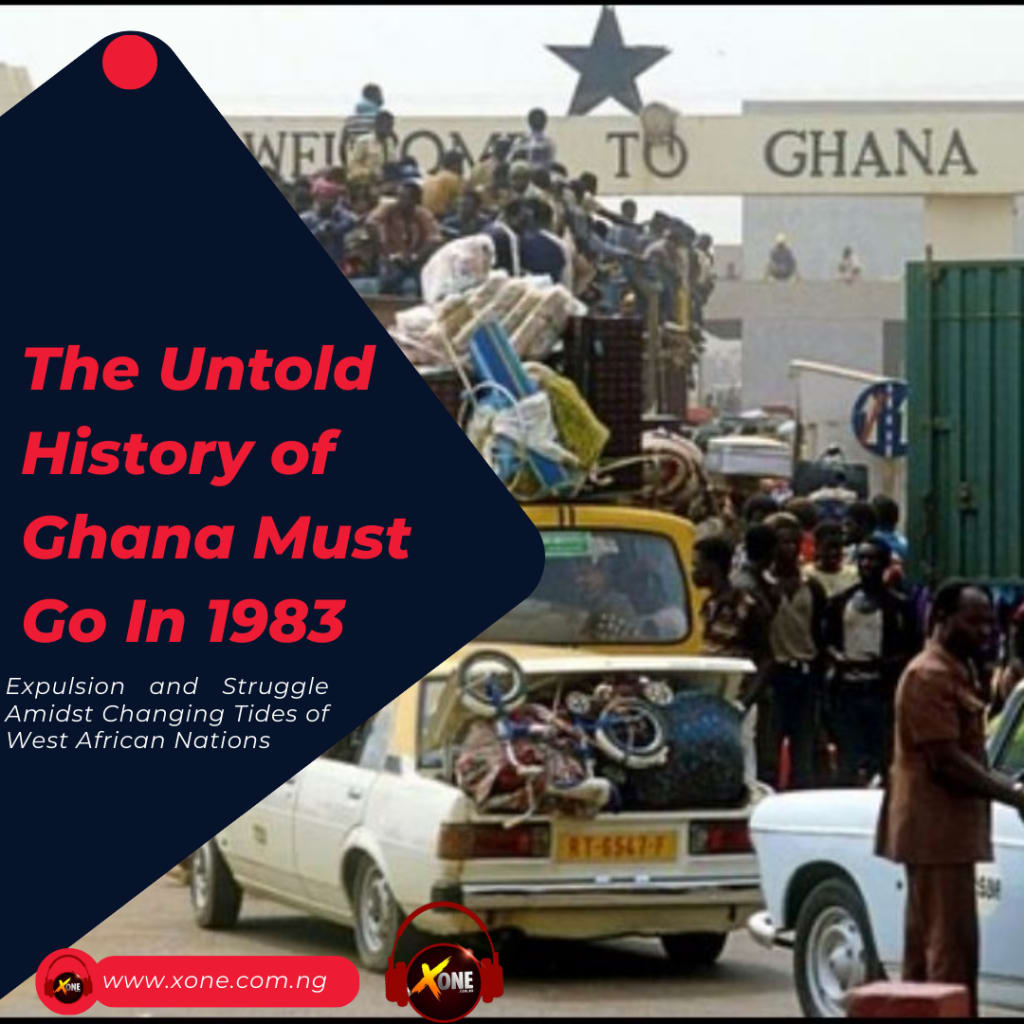The Untold History of Ghana Must Go In 1983
Expulsion and Struggle Amidst Changing Tides of West African Nations

In the annals of West African history, the year 1983 marks a somber chapter known as the "Ghana Must Go" tragedy, a harrowing saga that unfolded against the backdrop of political intrigue, economic upheaval, and the indomitable human spirit.
At the helm of Nigeria's democratic dictatorship was President Sheu Shagari, a figure whose tenure would be marred by a decision that reverberated across borders. Fueled by allegations of atrocities committed by illegal immigrants, the federal government of Nigeria issued an order that would lead to the mass expulsion of foreign residents. Most notably affected were Ghanaians, who had migrated in search of greener pastures during the 1970s, a time when Nigeria basked in the glow of an oil boom while Ghana grappled with its own socio-economic challenges.
Nigeria's ascension to prominence had been swift, driven by the discovery of oil in 1958. Global giants like Shell, Mobil, and Agip flocked to the Nigerian landscape, and by the 1970s, the nation had become Africa's economic powerhouse, its oil wells producing an astonishing 2.3 million barrels daily. This newfound wealth brought about an improved quality of life, drawing people from rural areas to urban centers, transforming travel habits, and reshaping consumption patterns. The allure was not confined to Nigerians alone; neighboring nations contributed to the swelling numbers seeking prosperity within Nigeria's borders.
However, the story in Ghana was markedly different. The decline in cocoa prices, coupled with the 1966 coup that ousted the revered Kwame Nkrumah, plunged the nation into a vortex of destitution and unrest. With a population of around seven million, a significant portion sought refuge in Nigeria, a nation they hoped would offer respite from their own struggles.
It was within this context that Ghanaians flocked to Nigeria, forming a vibrant diaspora that permeated various sectors of society, from education to commerce. Yet, the mass expulsion that transpired in 1983 was not a sudden whim; it was a culmination of circumstances that had been simmering beneath the surface.
As global economies like the United States and Canada grappled with recessions and demand for oil waned, oil prices plummeted in 1982. From $37 per barrel in 1980, prices dropped to $29. This turbulence was exacerbated by the United States' burgeoning self-sufficiency in oil production. For Nigeria, a nation heavily reliant on oil, this perfect storm led to a depletion of foreign reserves by a staggering 90% by 1982.
Faced with these challenges, Nigeria's political landscape began to shift. In the lead-up to the 1983 general elections, politicians seized upon anti-immigrant rhetoric as a means to redirect public frustration. The term "aliens" found its way into manifestos, and blame for the country's economic woes was attributed to African migrants, particularly Ghanaians. They were accused of monopolizing employment opportunities and fueling crime, becoming convenient targets for political scapegoating.
The strained relationship between Ghana's President, Flight Lieutenant Jerry J. Rawlings, and Nigeria's President, Alhaji Sheu Shagari, further deepened the crisis. The two leaders, once allies, found themselves at odds due to historical allegiances. The feud trickled down to their citizens, leading to suspended oil deliveries and worsening diplomatic ties.
The culmination of tensions arrived with the robbery at the residence of Alexander Ekwueme, Nigeria's Vice President. The involvement of foreign expatriates, including Ghanaians, added fuel to the fire. The Nigerian government, under the leadership of Minister of Internal Affairs Alhaji Alli Baba, responded swiftly, announcing the expulsion of all illegal immigrants within two weeks.
This event, however, was not an isolated incident. Both Nigeria and Ghana had previously engaged in large-scale deportations of each other's citizens, reflecting the complex interplay of economic pressures, political rivalries, and the human stories caught in the crossfire.
"Exodus of Hope: The Unveiled Chronicle of the Ghana Must Go Tragedy (1983)" not only chronicles the events of that turbulent period but also explores the underlying complexities of the human experience. It delves into the aspirations of those who sought refuge, the political maneuvers that shaped destinies, and the enduring bonds that transcend borders. Amidst the shifting tides of West African nations, this chapter serves as a testament to the resilience of individuals in the face of adversity and the intricate threads that connect us all.
About the Creator
X One Media
An Online News And Media Home






Comments
There are no comments for this story
Be the first to respond and start the conversation.